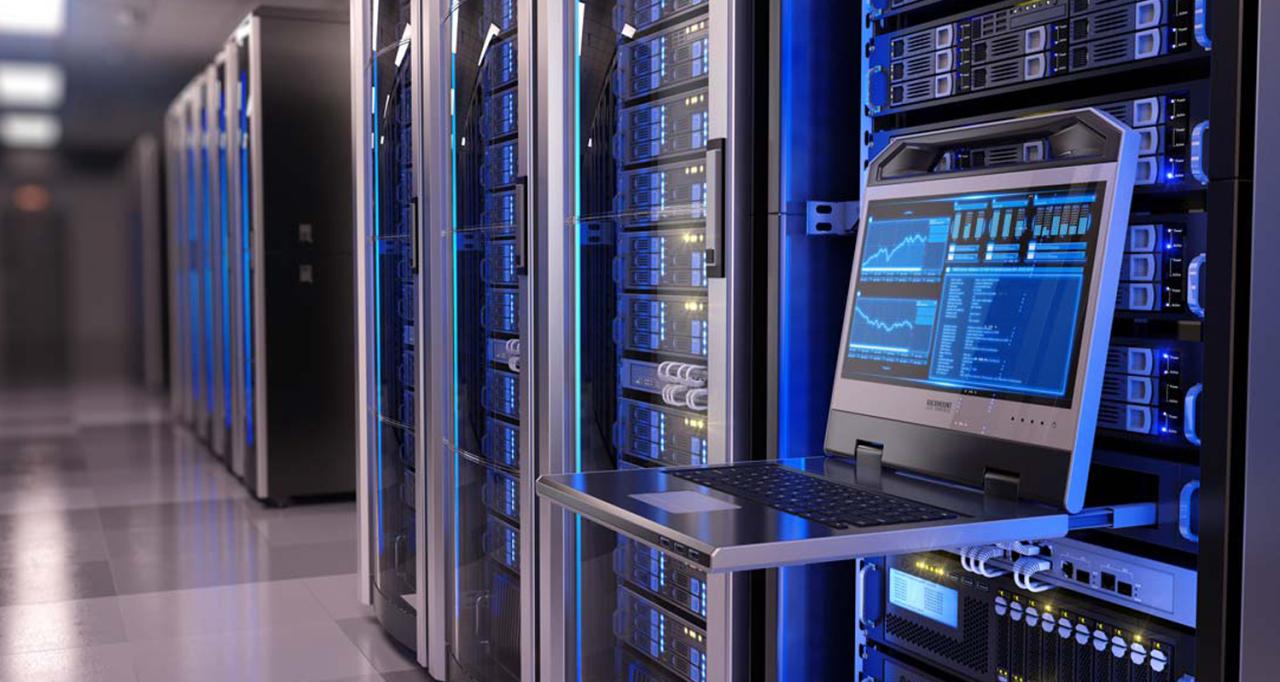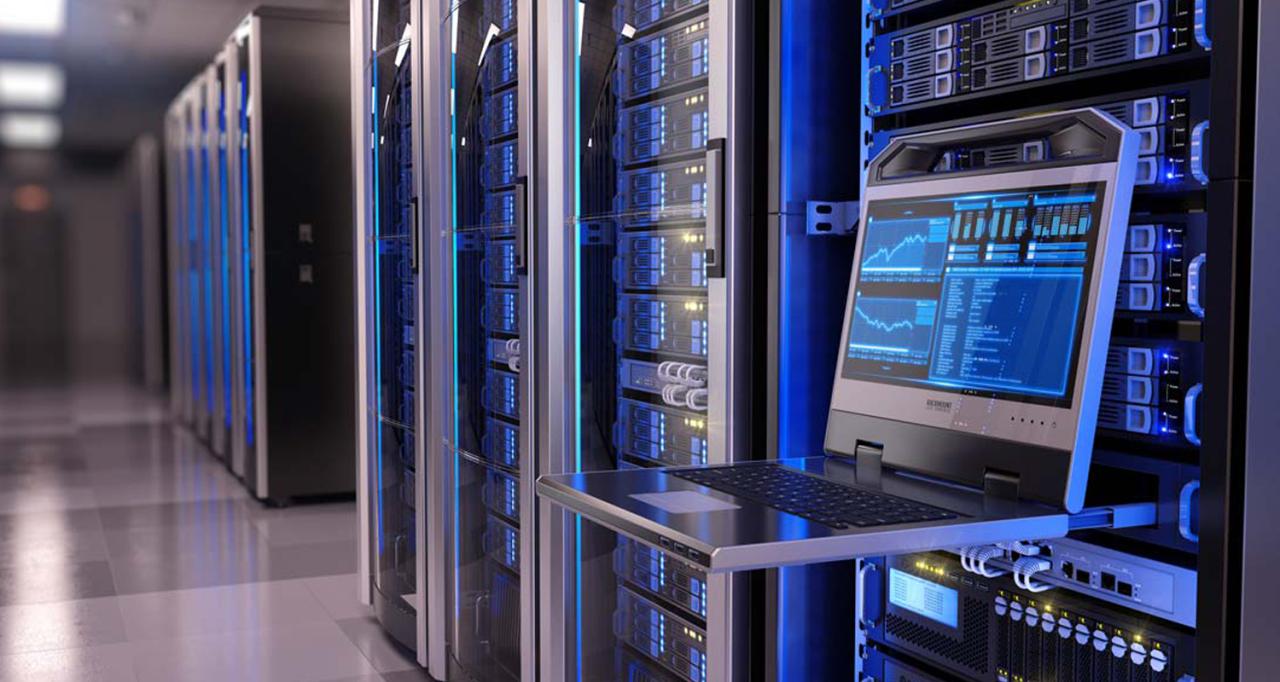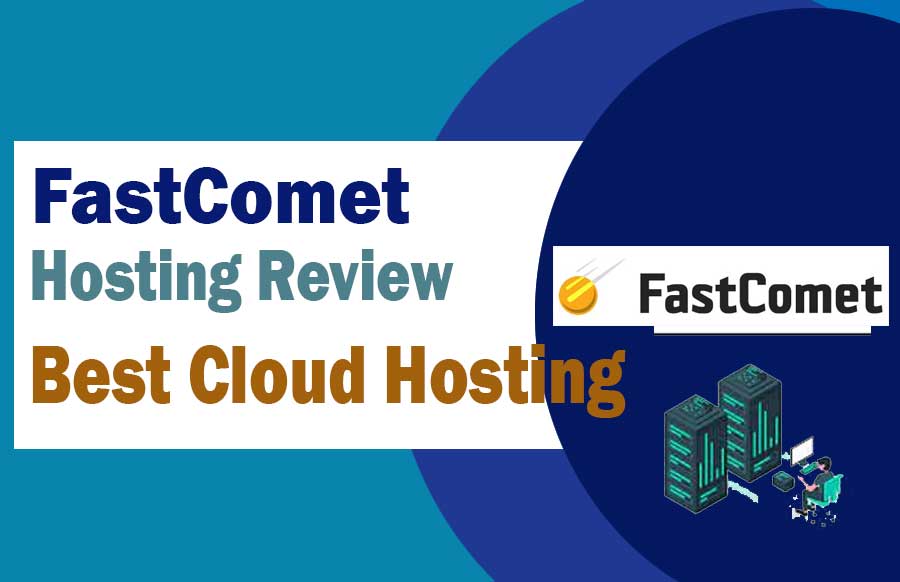Dedicated web servers set the stage for a robust online presence, offering a level of control and performance that shared hosting simply can’t match. Imagine a dedicated server as your own personal digital space, where your website thrives without the limitations of sharing resources with others. This dedicated environment empowers you to tailor your website’s performance and security to your specific needs, unlocking a world of possibilities for growth and scalability.
From e-commerce giants to high-traffic gaming platforms, dedicated servers are the backbone of numerous successful online ventures. Their ability to handle demanding workloads, guarantee uptime, and provide unparalleled security makes them an attractive choice for businesses seeking to elevate their online presence. This guide will delve into the world of dedicated servers, exploring their benefits, considerations, and applications, equipping you with the knowledge to determine if this powerful solution is right for your website.
What is a Dedicated Web Server?
A dedicated web server is a physical server that is exclusively dedicated to a single user or organization. It is a powerful and reliable solution for websites that require high performance, security, and control. Unlike shared hosting, where multiple websites share the same server resources, a dedicated server provides complete isolation and dedicated resources, ensuring optimal performance and security for your website.
Dedicated Server vs. Shared Hosting
Dedicated servers offer significant advantages over shared hosting, particularly for websites with high traffic volumes, complex applications, or demanding performance requirements.
- Dedicated Resources: With a dedicated server, you have exclusive access to all the server’s resources, including CPU, RAM, storage, and bandwidth. This means that your website is not affected by the performance of other websites on the server.
- Enhanced Security: Dedicated servers provide a higher level of security as your website is isolated from other websites on the server. This reduces the risk of security breaches and malware infections.
- Complete Control: Dedicated servers give you full control over the server’s operating system, software, and configurations. This allows you to customize the server environment to meet your specific needs.
- Improved Performance: Dedicated servers offer superior performance compared to shared hosting. The dedicated resources and lack of resource contention ensure that your website loads quickly and runs smoothly.
- Scalability: Dedicated servers are easily scalable. You can upgrade your server resources as your website’s needs grow, ensuring that you have the necessary capacity to handle increased traffic and data demands.
Scenarios Where a Dedicated Server is Suitable, Dedicated web server
Dedicated servers are an ideal solution for various scenarios, including:
- High-Traffic Websites: Websites that receive a large volume of traffic, such as e-commerce platforms, news websites, and social media platforms, benefit greatly from the dedicated resources and performance of a dedicated server.
- Complex Applications: Websites with complex applications, such as online gaming platforms, CRM systems, and ERP systems, require a dedicated server to ensure optimal performance and stability.
- Sensitive Data: Websites that handle sensitive data, such as financial transactions, medical records, or personal information, need the enhanced security and control offered by a dedicated server.
- Custom Environments: If your website requires a specific server configuration or operating system, a dedicated server provides the flexibility to customize the server environment to meet your needs.
- High Availability: Dedicated servers can be configured with redundant hardware and software to ensure high availability, minimizing downtime and ensuring continuous website operation.
Setting Up a Dedicated Server
Setting up a dedicated server involves several steps, from choosing the right hardware and software to configuring the server and securing it. It’s a process that requires a certain level of technical expertise, but with the right resources and guidance, it can be manageable.
Server Configuration
The configuration of your dedicated server plays a crucial role in its performance and security. Here are some common server configurations and their implications:
- Operating System: The choice of operating system (OS) is fundamental. Popular options include Linux distributions like CentOS, Ubuntu, Debian, and Windows Server. Linux is often preferred for its stability, security, and cost-effectiveness, while Windows Server offers a more familiar environment for users accustomed to Microsoft products.
- Web Server Software: The web server software handles requests from clients and delivers web pages. Popular choices include Apache, Nginx, and Microsoft IIS. Apache is known for its stability and wide range of features, while Nginx is praised for its performance and scalability. Microsoft IIS is a good option for Windows Server environments.
- Database Management System: A database management system (DBMS) is essential for storing and managing data. Popular options include MySQL, PostgreSQL, and MongoDB. MySQL is a widely used, open-source DBMS known for its reliability and ease of use. PostgreSQL is a powerful, open-source DBMS that emphasizes data integrity and security. MongoDB is a NoSQL database that excels in handling large datasets and unstructured data.
- Programming Languages and Frameworks: The choice of programming languages and frameworks depends on your specific application needs. Popular options include PHP, Python, Node.js, Ruby on Rails, and Java. PHP is widely used for web development, while Python is gaining popularity for its versatility and ease of use. Node.js is a JavaScript runtime environment that excels in building real-time applications. Ruby on Rails is a popular framework for web development, known for its rapid development capabilities. Java is a robust, platform-independent language used for various applications, including web development.
Server Management Tools
Server management tools are essential for monitoring, managing, and securing your dedicated server. These tools offer features like:
- Remote Access: Securely access your server remotely via SSH or RDP.
- Monitoring: Track server performance, resource usage, and potential issues.
- Security: Implement firewalls, intrusion detection systems, and other security measures.
- Backup and Recovery: Regularly back up your server data and restore it in case of failures.
- Automation: Automate repetitive tasks, such as software updates and system maintenance.
Performance Optimization for Dedicated Servers

A dedicated server offers unparalleled control and resources, but optimizing its performance is crucial to unlock its full potential. By implementing various techniques and understanding the impact of hardware configurations, you can significantly enhance your server’s speed and efficiency. This section will delve into strategies for optimizing dedicated server performance.
Hardware Configuration and Server Speed
The hardware configuration plays a vital role in determining the overall performance of a dedicated server. A well-configured server can handle high traffic volumes, process requests swiftly, and ensure a smooth user experience.
- Processor (CPU): The CPU is the brain of the server, responsible for processing instructions and executing applications. A powerful CPU with multiple cores and high clock speed is essential for handling demanding workloads. For instance, a server with a 16-core CPU will be able to process requests significantly faster than a server with a 4-core CPU.
- RAM (Random Access Memory): RAM is the server’s short-term memory, storing data that the CPU needs to access quickly. Adequate RAM is crucial for smooth operation, especially when running resource-intensive applications. For example, a server with 32GB of RAM will be able to handle more simultaneous users and applications than a server with 8GB of RAM.
- Storage: The type of storage used can significantly impact server performance. Solid-state drives (SSDs) offer significantly faster read and write speeds compared to traditional hard disk drives (HDDs). This translates to faster application loading times and improved overall responsiveness. For example, an SSD can reduce website loading times by 50% or more compared to an HDD.
- Network Interface Card (NIC): The NIC connects the server to the network. A high-speed NIC with multiple ports can handle large amounts of data traffic efficiently, ensuring fast data transfer and low latency. For instance, a 10 Gigabit Ethernet (GbE) NIC can handle significantly more traffic than a 1 GbE NIC.
Real-World Applications of Dedicated Servers: Dedicated Web Server
Dedicated servers offer a level of control, performance, and security that makes them ideal for a wide range of applications across various industries. They are particularly well-suited for businesses with demanding workloads, critical data, and high traffic requirements.
E-commerce
Dedicated servers are essential for e-commerce businesses that rely on fast and reliable website performance. They provide the necessary resources to handle large volumes of traffic, ensure secure transactions, and deliver a seamless customer experience.
- Scalability: Dedicated servers allow e-commerce businesses to easily scale their resources as their customer base grows, preventing performance bottlenecks and downtime.
- Security: Dedicated servers offer a high level of security, protecting sensitive customer data, payment information, and business operations from cyber threats.
- Performance: Dedicated servers provide consistent and predictable performance, ensuring fast loading times, quick checkout processes, and a positive customer experience.
Gaming
Dedicated servers are crucial for online gaming platforms, ensuring a smooth and enjoyable gaming experience for players. They provide the necessary resources to handle real-time interactions, prevent lag, and deliver high-quality graphics.
- Low Latency: Dedicated servers minimize latency, reducing lag and improving the responsiveness of the game.
- High Bandwidth: Dedicated servers offer high bandwidth, allowing for fast data transfer and seamless gameplay.
- Dedicated Resources: Dedicated servers ensure that gaming resources are not shared with other applications, guaranteeing consistent performance.
Content Delivery
Dedicated servers play a vital role in content delivery networks (CDNs), ensuring fast and reliable delivery of content to users worldwide. They host static content, such as images, videos, and files, and distribute them across multiple locations for optimal performance.
- Global Reach: Dedicated servers located in different geographical regions enable CDNs to deliver content quickly and efficiently to users around the world.
- Content Caching: Dedicated servers store copies of content in different locations, reducing the distance data needs to travel and improving loading times.
- Scalability: Dedicated servers allow CDNs to scale their resources to handle peak traffic demands, ensuring consistent performance during high-traffic events.
“We switched to a dedicated server for our e-commerce platform and saw a significant improvement in website performance and customer satisfaction. Our conversion rates increased by 20%, and we experienced a noticeable reduction in bounce rates.” – [Name of company] CEO
Final Review
In the realm of web hosting, dedicated servers stand as a testament to power and control. By offering dedicated resources, enhanced security, and customizable configurations, they empower businesses to achieve peak performance and reliability. Whether you’re building an e-commerce empire, hosting a gaming community, or simply seeking a superior online experience, a dedicated server can be the key to unlocking your website’s full potential. As technology continues to evolve, dedicated servers will undoubtedly remain a cornerstone of the digital landscape, offering a robust and scalable solution for businesses of all sizes.





